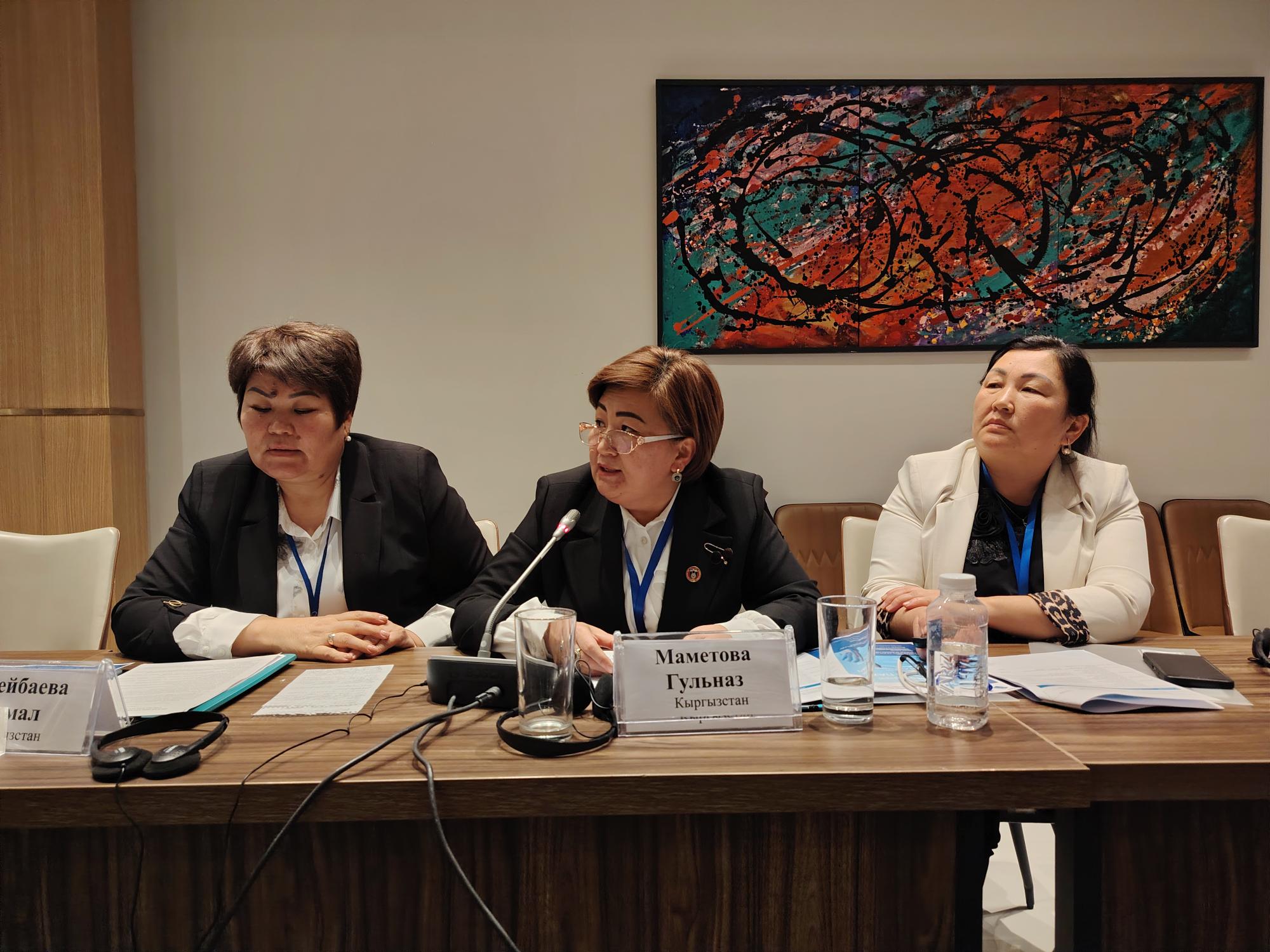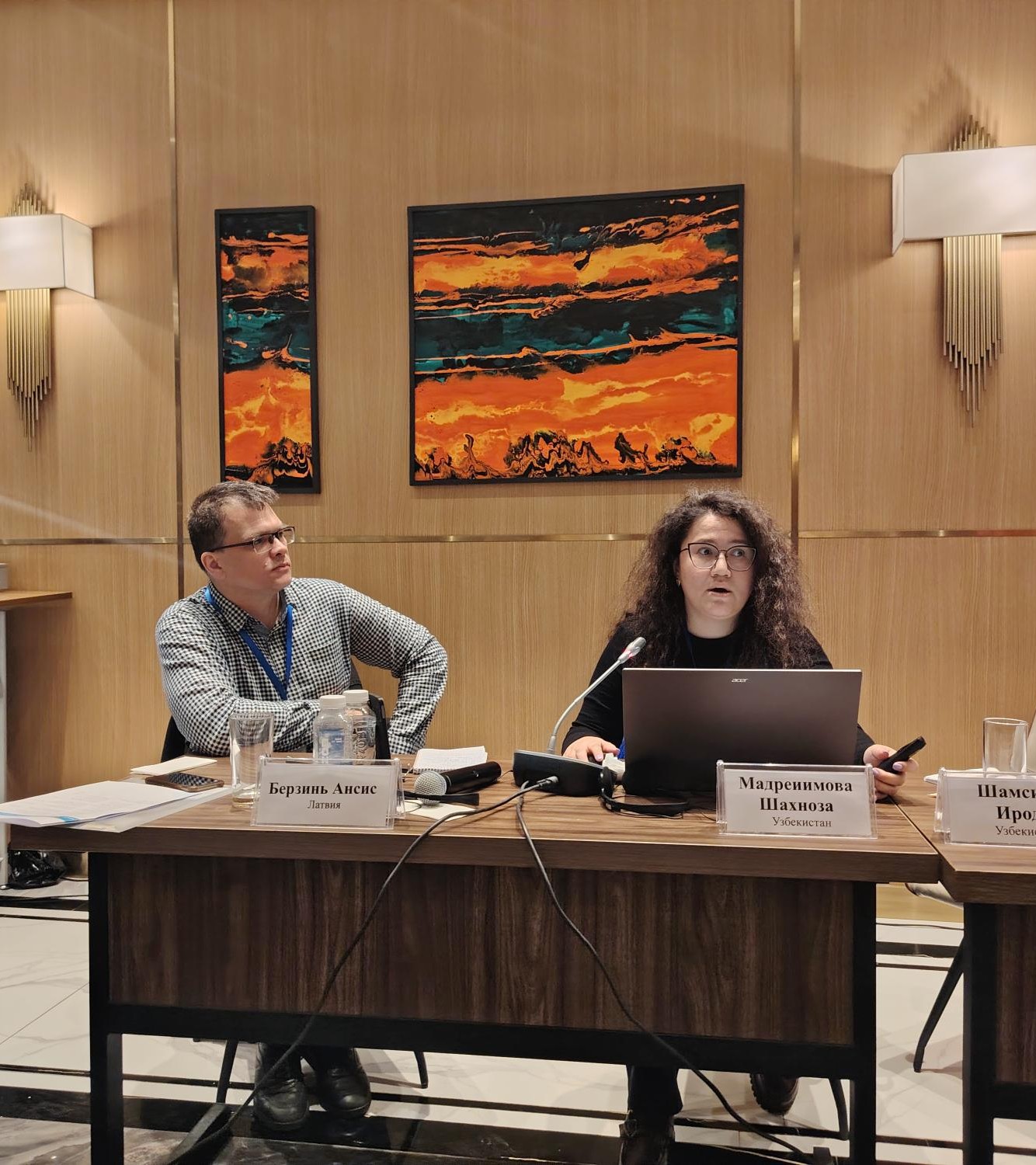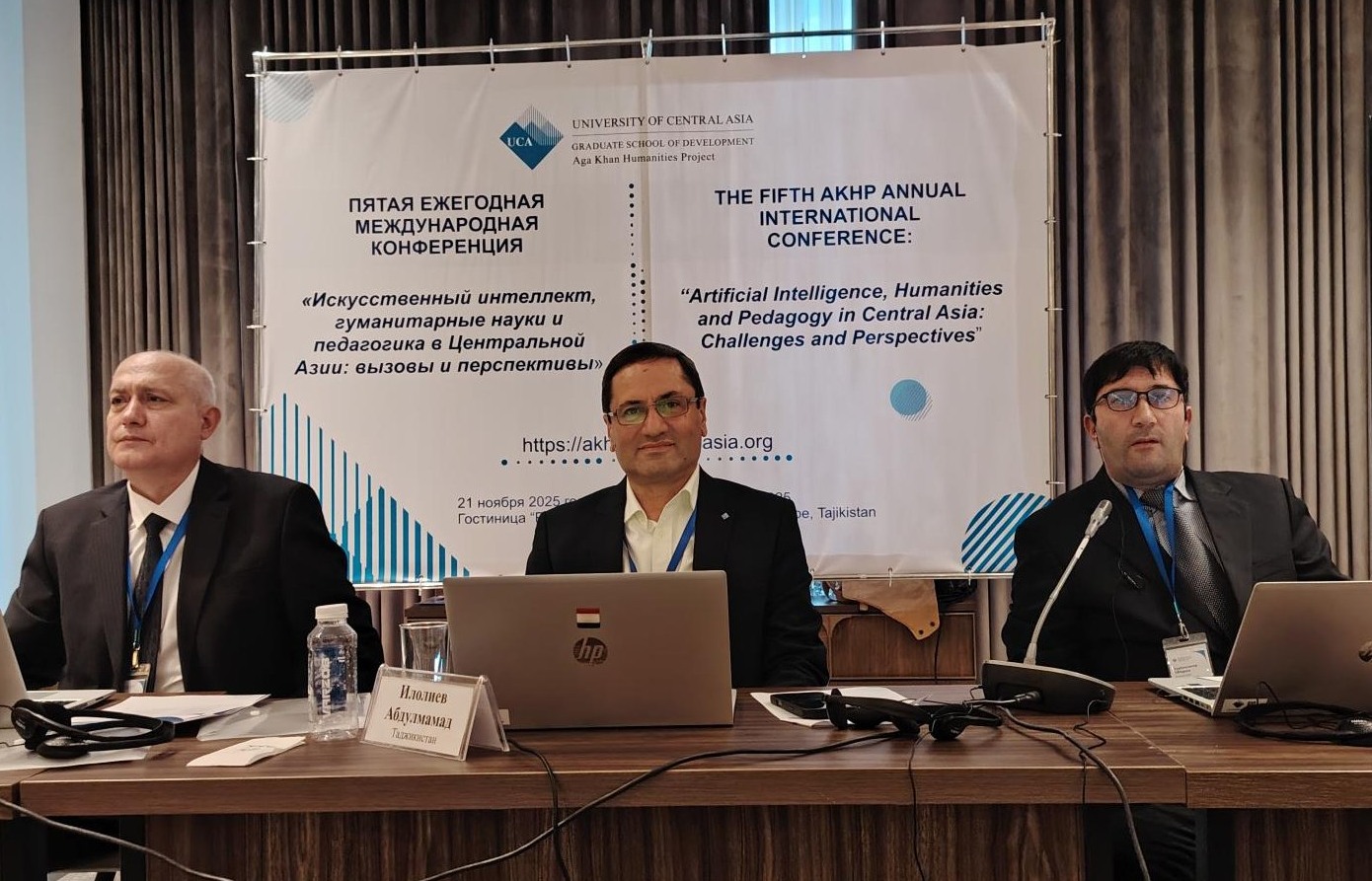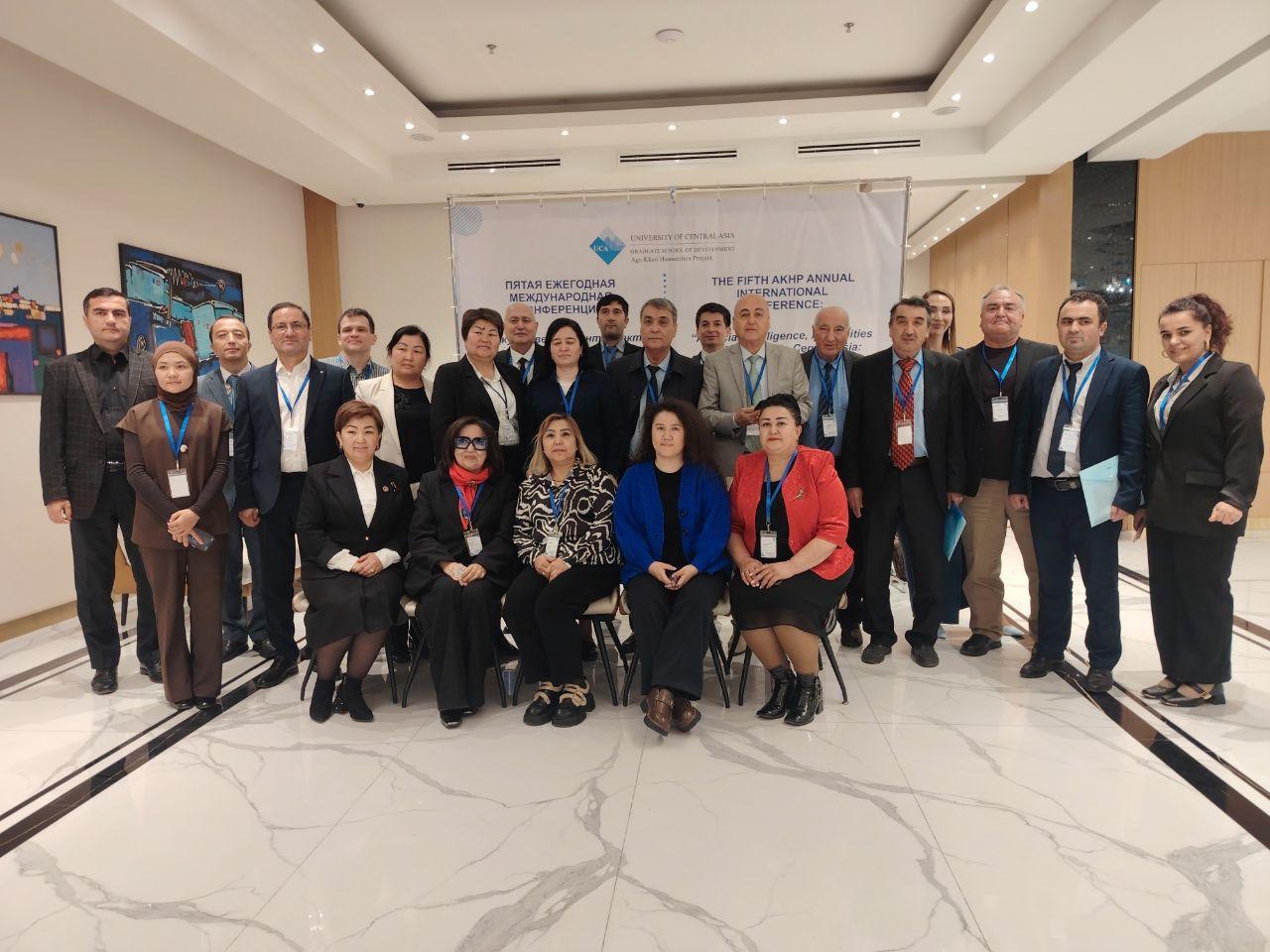
Fifth AKHP International Conference Explores Artificial Intelligence, Humanities, and Pedagogy in Central Asia
UCA’s Aga Khan Humanities Project (AKHP) hosted the Fifth Annual International Conference on “Artificial Intelligence, Humanities, and Pedagogy in Central Asia: Challenges and Perspectives” in Dushanbe. The event brought together scholars, educators, policymakers, and IT professionals from across the region and beyond to examine how rapid advancements in AI are reshaping education, culture, ethics, and social development in Central Asia.
Opening the Dialogue
The conference opened with welcome remarks from Dr Abdulmamad Iloliev, Director of AKHP, and Kemel Sadykov, Deputy Minister of Science, Higher Education and Innovations of the Kyrgyz Republic. They emphasised the urgency of understanding AI not only as a technological tool, but as a transformative force that requires reflection grounded in the region’s intellectual, cultural, and educational traditions.
Key Themes from the Sessions
AI in Education and Science
Speakers examined fundamental misconceptions about AI and its implications for teaching and academic integrity. Dr Andrejs Berziņš underlined that “AI is not intelligence in the human sense, but a mechanism for processing information,” prompting educators to rethink assessment and pedagogy.
Case studies on adaptive learning and automated assessment demonstrated the practical benefits of AI in higher education, while others highlighted the urgent need to close the region’s digital divide. As Dr A. Imasheva and Dr Sergio Luján Mora noted, “The successful integration of AI in Central Asia depends on strengthening digital infrastructure and building the capacity of university instructors.”
AI, Ethics, and Cultural Understanding
The second session focused on philosophical and ethical dimensions. Professor Pulat Shozimov argues that while Artificial Intelligence serves as a powerful "transcendental amplifier" of human rationality, it is fundamentally limited to the immanent realm and cannot access meaning and values, which remain the exclusive domain of human consciousness, rooted in the transcendental philosophical tradition of Central Asian thinkers like Ibn Sina.
AI and Social Processes
Presenters explored AI-driven solutions for social development, including models for career guidance in Tajikistan and tools to support disability inclusion in Kyrgyzstan. At the same time, experts warned against deepening inequalities, particularly in the context of demographic change and ageing populations.
Interdisciplinary Perspectives and Regional Readiness
The final session addressed AI’s role in cultural dialogue and cross-border educational integration. Comparative studies from Russia, Tajikistan, and Uzbekistan showed that readiness for AI adoption varies widely across the region, reinforcing the importance of building ethical frameworks and digitising regional cultural heritage.
A Platform for Regional Thought Leadership
The conference reaffirmed AKHP’s role as a leading regional platform for dialogue at the intersection of technology and the humanities. Participants emphasised that, despite AI’s growing capabilities, it is human consciousness—rooted in culture, ethics, and meaning-making—that must guide the region’s digital transformation.
“We found exactly what we were missing. We will join your conference again next year — and we invite UCA colleagues to present in Uzbekistan as well.”
— Dr Iroda Shamsieva, Tashkent International University Kimyo
“This conference is a major and important event not only for Tajikistan, but for the entire region. It raises fundamental and existential questions about the future of AI in science, education, and public life.”
— Dr Rustam Haidarzoda, Director, Institute for the Study of Asian and European Problems, Tajikistan National Academy of Sciences
The event concluded with a shared commitment to advancing interdisciplinary research and fostering responsible AI integration in Central Asia’s education and cultural sectors.











